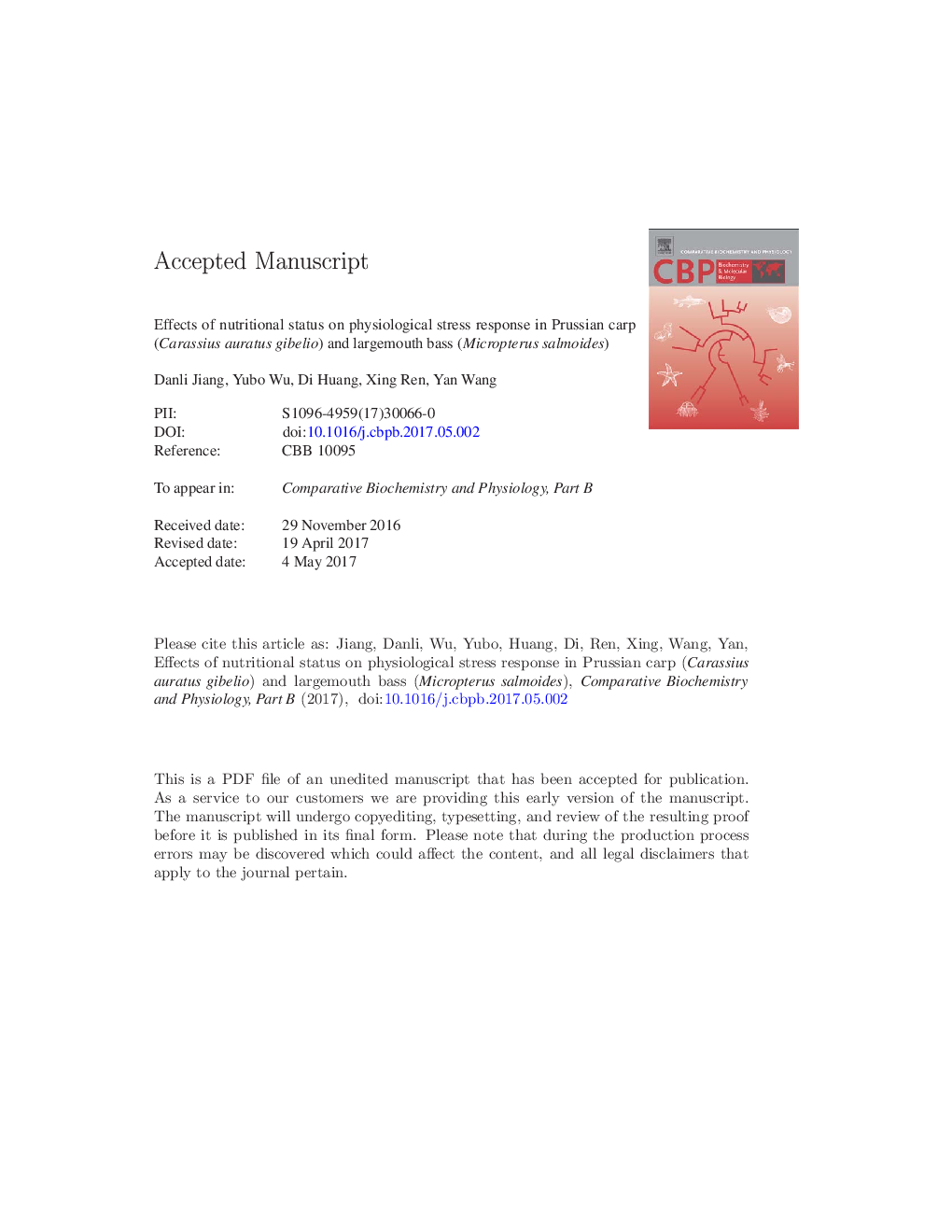| Article ID | Journal | Published Year | Pages | File Type |
|---|---|---|---|---|
| 5510528 | Comparative Biochemistry and Physiology Part B: Biochemistry and Molecular Biology | 2017 | 31 Pages |
Abstract
The stress response of omnivorous gibel carp (Carassius auratus gibelio) and carnivorous largemouth bass (Micropterus salmoides) with different nutritional history were evaluated. A 2Â ÃÂ 2 layout, including two fish species (gibel carp or largemouth bass) and two nutritional history (fasted or fed to satiation for four weeks), was used. After feeding or fasting, the fishes were subjected to an acute handling. Fasting resulted in decrease of plasma glucose level and liver glycogen content of gibel carp and largemouth bass. After handling stress, plasma levels of cortisol, glucose and lactate of gibel carp and largemouth bass increased, regardless the fasted fish or fed fish. During the period from 0Â h to 24Â h post-stress, the fasted gibel carp exhibited lower plasma cortisol and glucose levels, brain and liver glycogen contents, and liver phosphoenolpyruvate carboxykinase (PEPCK) activity compared with the fed counterpart. The plasma glucose level, brain glucose level, brain and liver glycogen contents were lower, while the liver PEPCK and hexokinase (HK) activities were higher, in the faster largemouth bass than the fed counterpart. This study indicates that nutritional history can influence stress response of gibel carp and largemouth bass, and the stress response is less severe in the fasted fish relative to the fed counterpart. This study also reveals that gibel carp and largemouth bass may have different strategies in response to fasting and acute handling stress.
Related Topics
Life Sciences
Biochemistry, Genetics and Molecular Biology
Biochemistry
Authors
Danli Jiang, Yubo Wu, Di Huang, Xing Ren, Yan Wang,
